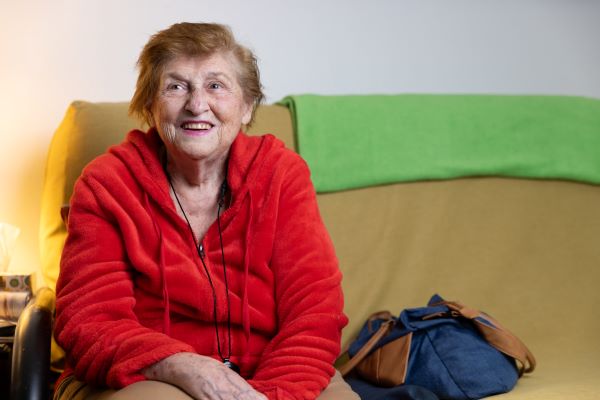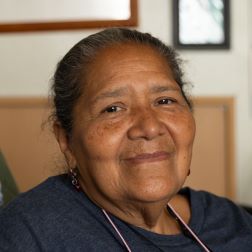
“What you see is what you get,” says Dorothy. What you see: a 92-year-old woman with a sharp gaze and an easy smile. “I like to be nice to everyone, but you can’t let people walk over you.”
Born and raised in the Bronx, Dorothy moved into her two-bedroom in Sunnyside, Queens more than 60 years ago. She couldn’t imagine living anywhere else — and not just because it’s rent-controlled. She loves the neighborhood. “People are very friendly,” she says. “That’s the way it is in Sunnyside. In some ways, it’s changed a lot, in other ways, it hasn’t. It’s a very comfortable feeling.”
As a young woman, Dorothy had a lot of responsibility on her shoulders. After her parents separated — “People didn’t get divorced in those days,” she says — she had to step up to support her mother and younger brother, even after she left home. “I was the man of the family,” she says with a laugh. A career woman, she’s had a series of jobs over the years. She worked for a telephone company, as the receptionist for a doctor’s office and even had her own company, providing temporary workers for offices across Manhattan.
Dorothy lives alone. She’s always been independent, but last year, that independence was threatened. While getting into the shower one morning, Dorothy lost her footing. “I fell backwards and smashed my head on the tub,” she says. She doesn’t know how long she lay there, dazed and bleeding. “There was a lot of blood.” Dorothy had to pull herself out of the tub and drag herself to the phone to call for help.
Luckily, there was no permanent damage. “I must have a very hard head,” she jokes. But the accident has changed how Dorothy does things. Now, she wears an emergency alert necklace, in case she falls again. She also has her home health aide, Odette, come in more often — four times a week instead of three. Dorothy needs the extra help, whether it’s with simple household chores, bathing or cooking. “I always cooked in the past, but now I can’t stand on my feet too long,” she says. While Odette helps her prepare meals, Dorothy relies on Citymeals to ensure she always has food on hand.
Leaving the apartment on her own is tricky. “I can’t walk that well,” she admits. Though, she’s determined not to let that stop her. “I’ll get up and down the stairs no matter what,” she says. “You have to try, to make the effort. I feel bad for people who don’t.”
You have to make the effort.
Personally, Dorothy finds her days both full and fulfilling. “I don’t have enough time!” she exclaims. Between trips to the grocery store, doctor appointments and the occasional visit to her local older adult center, Dorothy has a packed schedule. She also makes time to catch up with her friends on the phone, like Lué, a volunteer she met through Citymeals’ Social Calls program. The pair talk once a week for at least an hour. “We have to make ourselves hang up,” she says. “We have so much in common.”
Dorothy insists that the key to aging well is staying active, physically and mentally. “As people get older, they’re looked upon as a certain category of person who can’t do this or that,” she says. “If you let yourself get into that category, you stay there. It’s bad for your health, bad for your mind.”
She has some lovingly stern advice for anyone who wants to make it past 90: “Don’t let anyone tell you what you can and can’t do.”


